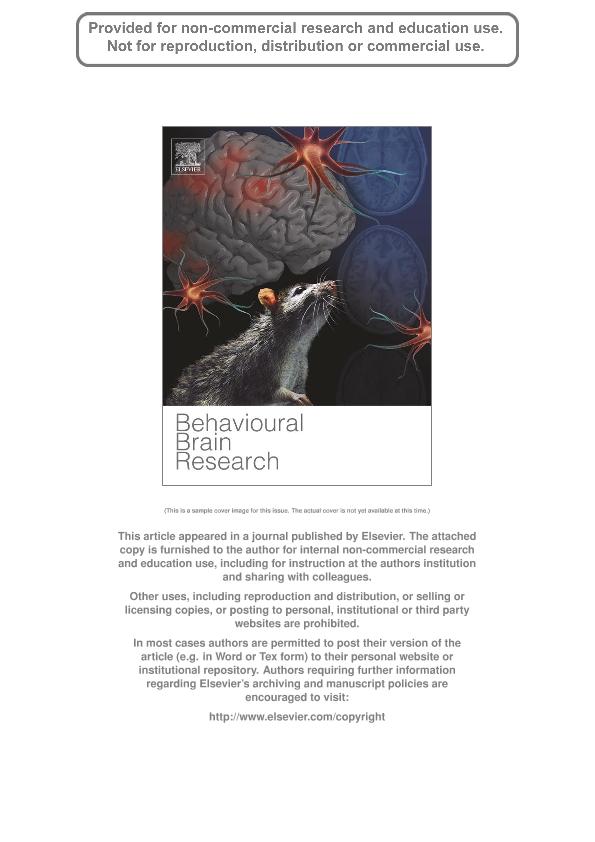Artículo
Perinatal protein deprivation facilitates accumbal ERK phosphorylation in cocaine-sensitized adult rats
Velazquez, Evelin Edith ; Valdomero, Analía
; Valdomero, Analía ; Maldonado, Noelia Martina
; Maldonado, Noelia Martina ; Orsingher, Otto Alberto
; Orsingher, Otto Alberto ; Cuadra, Gabriel R.
; Cuadra, Gabriel R.
 ; Valdomero, Analía
; Valdomero, Analía ; Maldonado, Noelia Martina
; Maldonado, Noelia Martina ; Orsingher, Otto Alberto
; Orsingher, Otto Alberto ; Cuadra, Gabriel R.
; Cuadra, Gabriel R.
Fecha de publicación:
03/2013
Editorial:
Elsevier Science
Revista:
Behavioural Brain Research
ISSN:
0166-4328
Idioma:
Inglés
Tipo de recurso:
Artículo publicado
Clasificación temática:
Resumen
In previous studies we described that perinatal protein deprivation facilitates the development and expression of behavioral sensitization to cocaine. In this research, we explored whether the increased reactivity observed in deprived (D) versus control (C) rats is also evident during drug-free withdrawal periods. Considering that activation of the extracellular signal-regulated protein kinase (ERK) is suggested to be involved in cocaine-induced behavioral sensitization, we study the effects of perinatal protein deprivation on phosphorylated ERK2 (pERK2) protein levels in the NAc (core and shell) during different drug-free withdrawal periods. To induce behavioral sensitization, C- and D-rats received a daily injection of cocaine (5-10. mg/kg, i.p.) for 7 days and locomotor activity was performed on days 1 and 7. Cocaine-sensitized animals were left drug-free and pERK2 was assessed on withdrawal days (WD) 1, 4, 7 and 21. In the NAc core, cocaine induced ERK signaling pathway activation in a dose-dependent manner, and only D-rats showed a significant increase in pERK2 protein levels with the lowest dose of cocaine (5. mg/kg). Moreover, sensitized C-rats with 10. mg/kg showed an increase in pERK2 levels from WD7 while D-rats showed this activation on WD4, which remained increased on WD7 and 21. In contrast, in the NAc shell, only sensitized D-rats with cocaine 10. mg/kg showed ERK2 activation on WD21. These results suggest that perinatal protein deprivation facilitates the molecular processes involved in neuronal plasticity occurring during withdrawal.
Archivos asociados
Licencia
Identificadores
Colecciones
Articulos(IFEC)
Articulos de INST. DE FARMACOLOGIA EXPERIMENTAL DE CORDOBA
Articulos de INST. DE FARMACOLOGIA EXPERIMENTAL DE CORDOBA
Citación
Velazquez, Evelin Edith; Valdomero, Analía; Maldonado, Noelia Martina; Orsingher, Otto Alberto; Cuadra, Gabriel R.; Perinatal protein deprivation facilitates accumbal ERK phosphorylation in cocaine-sensitized adult rats; Elsevier Science; Behavioural Brain Research; 241; 1; 3-2013; 222-227
Compartir
Altmétricas



